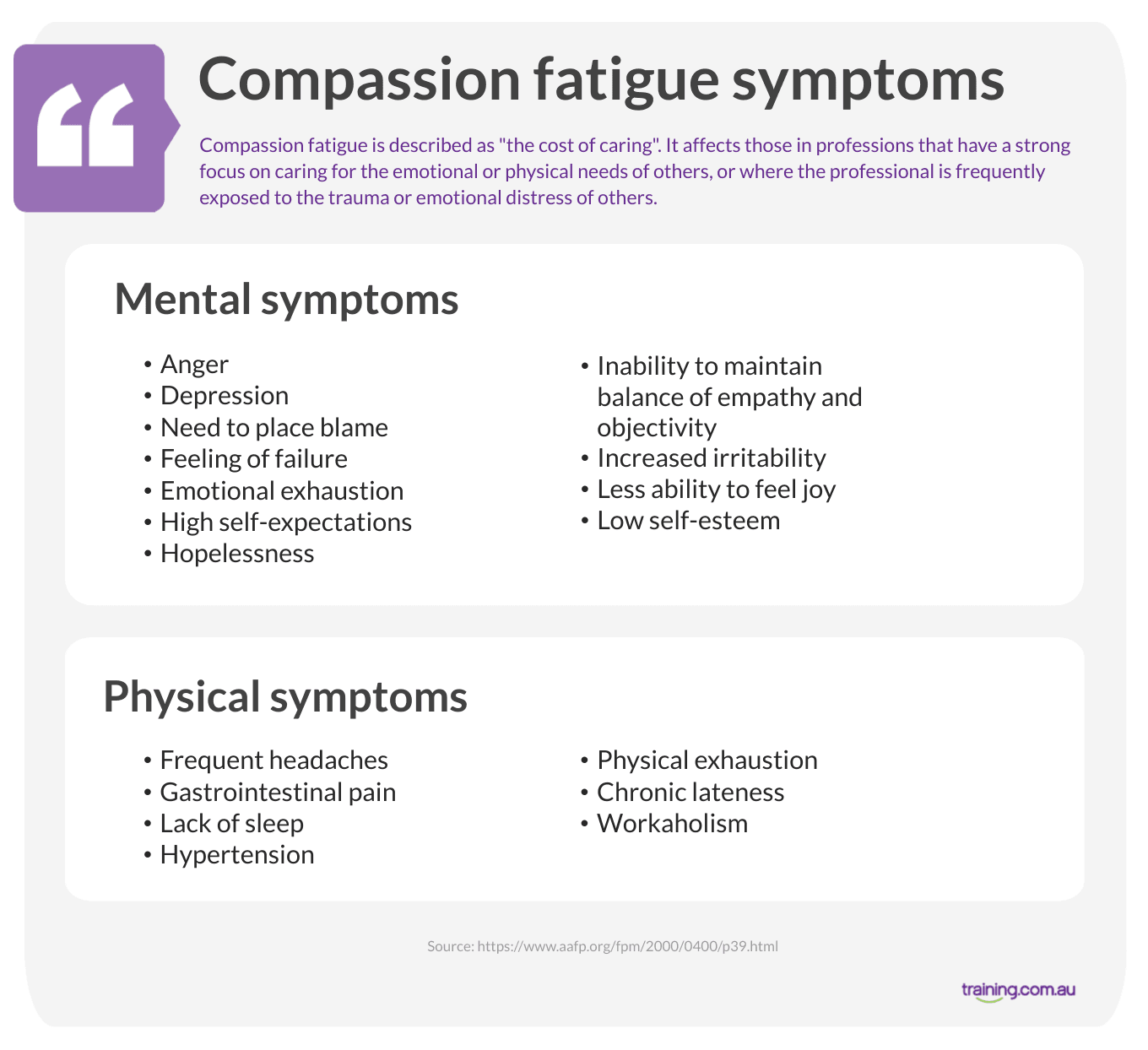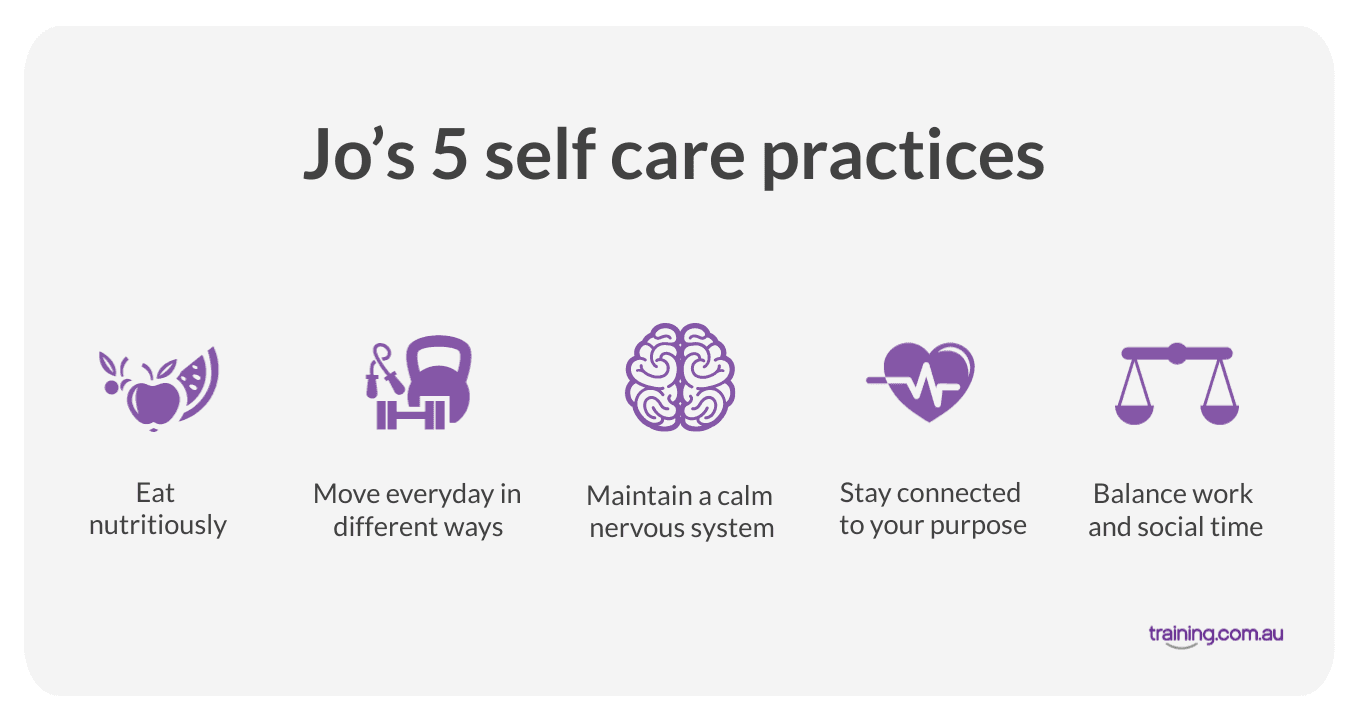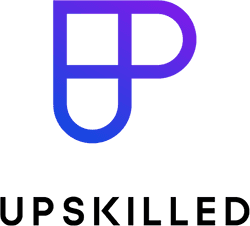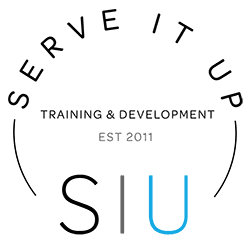In this post
- 1. To become a good counsellor, you need supervision and experience in the client’s chair
- 2. When you become a counsellor, don’t act like a counsellor
- 3. Burnout will sneak up on you as a new counsellor
- 4. Avoid diving into complex mental health issues as a new counsellor
- 5. You may not know if you’re making a difference
- 6. Your own life experiences are your most powerful tool
- Browse Counselling Results
What to Expect When You Start Working as a Counsellor: 6 Lessons

In this post Show
- 1. To become a good counsellor, you need supervision and experience in the client’s chair
- 2. When you become a counsellor, don’t act like a counsellor
- 3. Burnout will sneak up on you as a new counsellor
- 4. Avoid diving into complex mental health issues as a new counsellor
- 5. You may not know if you’re making a difference
- 6. Your own life experiences are your most powerful tool
- Browse Counselling Results
Guiding people through tumultuous times in their lives is a deeply rewarding experience.
But working as a counsellor isn’t for everyone. You need a strong calling to work in this field. It has a set of unique challenges that can quickly overwhelm someone without the commitment or passion to stick them out.
If you’re driven by a purpose or led by life experience, working as a counsellor is bound to provide incomparable fulfilment. You’ll experience beautiful, moving moments as a counsellor, but you’ll also have confronting encounters. These encounters pave a steep learning curve when you first start practicing. You’ll battle burnout, experience imposter syndrome, and may even take some wrong turns with clients.
Jo Woods has been a counsellor for 20 years, and has experienced all of this in her career. The lessons she learned when she first began practicing have become ingrained ideals in her career. And these ideals have helped her provide the best care to her clients.
Here, she shares the lessons she learned as a new counsellor that still ring true 20 years on.
1. To become a good counsellor, you need supervision and experience in the client’s chair
If you’re drawn to counselling as a career, it’s likely you already have the traits and passion required to become a good counsellor. But raw passion alone won’t get you far in this journey. To give yourself a solid foundation as a counsellor, Jo says two things are key:
- Supervision from a more experienced counsellor
- Experience as a client
In your early years, Jo says these two things should be at least monthly or bi-monthly. “You really need someone to talk about sessions with, and ask questions about how you might have handled something.”
Even now, 20 years into her counselling career, Jo still ensures she’s keeping up with them. “I have supervision once a month, and I have my own session with someone once a month or two.”
When you start working as a counsellor, Jo advises keeping notes on your sessions. You can bring the notes to your supervision sessions so you can ask questions about how you might have handled something.
But Jo says, “These supervision sessions are also to check in on you, because your counselling sessions can bring up things in you,’ Jo says.
‘If you haven’t worked through your issues in at least a basic way and if you don’t have a good awareness of your triggers, I think therapy is difficult to give to others.”
Being ‘on the couch’ yourself can also give you valuable insights into the client’s experience — for instance, how it feels walking into a session, and what it’s like building rapport with the counsellor you’re seeing. Most importantly, it gives you hints about how to make clients feel as welcome and comfortable as possible.
Your personal experience as a client will also help you understand one of Jo’s most crucial pieces of advice: when you become a counsellor, don’t act like a counsellor.
2. When you become a counsellor, don’t act like a counsellor
“A couple of therapists I’d seen in my early days, had that ‘therapist persona’. And I wasn’t able to connect with them because they were being a therapist,” Jo recalls. “I think it’s really important to just be yourself, and use your training and your life experiences to listen, empathise and relate to your clients.”
The reason people will struggle to connect with the therapist persona is because “it’s not authentic”, Jo explains. “People sense it. I sensed inauthenticity with those two counsellors. And it meant I wasn’t able to relax and I was less likely to share what was really happening for me. It just doesn’t really click.
But there are some things that can interfere with your ability to close that gap. Jo says it could be “the realisation that you’re very green, and perhaps the feeling of imposter syndrome, which is a lack of self-trust.”
She explains these things, along with a lack of experience, can cause you to “spend a lot of time in that persona. And I think when you’re new it’s really hard to close that gap and be yourself. Hence why you need to have your own sessions, because that’s a project in itself.”
How to Become a Counsellor: An Intellectual Job That Makes a Difference
Learn the steps to becoming a counsellor, including what to study and how to get accredited.
3. Burnout will sneak up on you as a new counsellor
One of the most insidious yet common challenges you’ll face working as a counsellor is burnout. “It’s often called compassion fatigue in the counselling world,” Jo explains. “You start to notice that you don’t have that same level of empathy that you used to have. That’s always a telltale sign.”
The risk of developing compassion fatigue is especially high for new counsellors.

“When I started as a counsellor, I went so fast and packed a lot in, and I didn’t really know how to manage my emotions. Very soon after I started practicing — probably towards the end of my first year — I just started to feel really fatigued and I wasn’t trusting myself. I was second-guessing and feeling anxious,” Jo recalls.
Compassion fatigue comes with its own series of sinister challenges. As well as second-guessing your professional abilities, you’ll start to find your working environment makes you feel fragile, sad or demotivated. On top of that, Jo says, “It boils into your personal life. So, not only do you feel a little fragile in the working environment, but you also start to feel that way at home and in your personal relationships.
The velocity at which compassion fatigue hits you often means you won’t be prepared for it — especially as a new counsellor. “It snowballs and that’s when everything falls apart.” Jo explains.
“I think the trick with burnout is to notice the signs really early. But ideally, you wouldn’t get to that point because you’d be managing your health and wellbeing,” Jo says. “If you’ve got good support around you and supervision, and you’re really practicing self care then you can definitely avoid it.”
Jo’s 5 self care practices

“I think the main thing with self care is to be aware of your energy,” Jo says. Her five self care essentials are:
- Eat nutritiously
- Move everyday in different ways
- Maintain a calm nervous system
- Remain connected to your purpose and values as a counsellor
- Have a balance of work and social time
Aside from these, Jo says sleep and rest are crucial for maintaining your wellbeing.
4. Avoid diving into complex mental health issues as a new counsellor
It seems counterintuitive to everything you’ve been working towards. Especially after your studies, you’re probably raring to get into the thick of things. But Jo’s advice is to ease into the field, and gain experience before you start working in complex niches.
“When I first became a counsellor, I was working in stress management,” she says, explaining that she didn’t even work with people with panic attacks, she only helped those with acute stress. While it might seem basic, this is the best way to gain confidence as a new counsellor.
The experience you gain through counselling at a basic level will also help you through the more confronting moments you’ll experience as a counsellor.
Jo recalls one experience in her very early days as a counsellor: “I was working with a couple and one person was unhappy with how I handled a certain session.
“It’s upsetting when you know you’ve taken a wrong turn with someone and they feel confronted or they don’t feel heard. If it’s in a couple setting, they might feel ambushed or that there’s an imbalance.
“But again, if you’re working at a level that you feel competent and confident in, you can avoid those moments to a large extent.”
However, Jo says, “I do think they’re inevitable.”
This is where your experience becomes invaluable. It will help you navigate confronting situations and move forward.
5 Types of Counselling Jobs | The Essential Guide
Discover five different niches in counselling, and the kind of difference you could make in each.
5. You may not know if you’re making a difference
The topic of getting told you’ve taken a wrong turn in a counselling session ties into the much more difficult question of, “Am I making a positive difference?”
“Making a difference is such a huge question,” Jo says. “Again, as a new counsellor, when you’re green and lacking confidence it’s hard to read your client to see if you are.
You might feel as though you need to make an immediate and life-changing difference in every client in order to be successful. But that’s not the nature of counselling.
At its core, counselling helps people reflect on their experiences and draw their own insights in order to solve issues. ‘Help’ is the operative word. You can’t necessarily give client’s advice or tell them how to ‘fix’ something. Your job is to guide them to reflect on their experiences and discover the answers themselves.
That’s why, often, positive changes will occur as a slow burn. The difference you make will be seen in subtle ways — perhaps a client is getting better at self-reflecting, or their walls might come down a little further each time you see them.
Epiphanies and breakthroughs happen too, but these can take many sessions to reach.
“I’ve had some really incredible sessions with couples, and I’ve had equally as moving sessions with individuals,” Jo recalls. “You might call them ‘breakthrough moments’, but also just watershed moments where someone has finally broken down or had an epiphany that’s life changing for them.”
What is a watershed moment?
A watershed moment is a turning point, or a pivotal moment. It’s the moment something in a person’s life changes direction, and from that point things are never the same. It’s considered a momentous occasion.
“Some of the sessions I’ve had with couples have been amazing where they’ve repaired some really old, deep hurts. And they’ve had the realisation that they could stay together and have a really amazing relationship,” Jo says.
Sometimes, feelings of imposter syndrome or uncertainty around whether you’re making a difference can actually be hinting that you’re “working at too high a level”, Jo explains. “That could be a good indication to reassess the client population you’re working with and the niche that you’re in.”
6. Your own life experiences are your most powerful tool
Before you even begin your studies to become a counsellor, you probably already have a purpose that’s driving you. For many people, this driving force is rooted in personal life experiences.
It’s important to define and stay connected to your purpose, Jo explains. This is what will drive you through the tougher aspects of the role.
“It’s like any other job: it’s got some really lovely experiences in it, and some incredible moments. But it also has parts that are difficult and some that may be tedious,” she says. “You have to remind yourself that it’s a job.
“What drives me is that I’m committed to being in service. I’m here to serve and support people, and help them find their way forward and figure out their life and relationships. And when I stay connected to that objective and the drive, I think that helps you push through the bits that aren’t so pleasant.”
Your life experiences also form a really powerful aspect of your counselling career.
“If you’ve had life experience with someone who’s alcohol affected, has a disability, or any particular part of life you have a lot of experience in, I really encourage you to consider specialising.”
Jo began specialising in relationships a few years ago, saying, “It was an organic evolution of my practice with individuals. Because, let’s face it, the majority of our issues are in relationships.” But more so than that, she explains it was always a niche she was interested in because of her own life experiences.
“I’ve always found relationships very confusing — specifically what you’d call the primary attachment relationship.
“As I started to work in the couples area, my experience of feeling insecure, confused and unsure has played a critical part in my ability to help others. I have deep insights around what it might feel like to be in that relationship that I’m working with,” she explains.
That strong sense of empathy is an invaluable asset to have while working with clients. It also helps your authentic self shine through.
The Best Counselling Fields to Specialise In
When considering your future career in counselling, it’s worth thinking about which pathways are in demand, and which specialisations your life experiences would be an asset to.
Working as a counsellor will have challenges unlike any other job. It’s a role that only calls to those whose purpose, life experiences and interests have led them on a new journey to help others. As long as you remain connected to your purpose and you let your authentic self shine, your counselling career will offer a sense of fulfilment you’re unlikely to find elsewhere.
Find your perfect course to start your journey as a counsellor.
Becoming a Counsellor in Australia: Your One-Stop Guide
Discover a resource library that can take you from A to B on your journey to becoming a counsellor. From figuring out what specialisation to choose, to insights from professional counsellors, this guide has everything you need.
Read the other articles in this series:
“It Can Be Heartbreaking”: Raw Insights Into Becoming a Counsellor
To get a realistic and honest look into being a counsellor — no holds barred — professional counsellor Dan Auerbach offers the insights he’s gleaned through his career.
7 Things I Wish I Knew Before Becoming a Counsellor
Amber Rules, a practicing psychotherapist, counsellor, clinical supervisor and facilitator, shares the things she wished she knew before becoming a counsellor.
Browse Counselling Results
Bachelor of Cyber Security CRS1401441
The Bachelor of Cyber Security offered by AIBI Higher Education is a technical course designed to prepare students for entry-level roles leading to an exciting career in Cyber Security. Students will first learn the foundations of information technolog...
Certificate IV in Building and Construction (Building) CPC40120
Move up the career ladder without attending a classroom with our nationally accredited CPC40120 Certificate IV in Building and Construction (Building). You’ll learn safety, contracts, structural principles and materials, estimating, and many more skill...
Certificate in III Information Technology Focus on Basic Cyber Security Awareness ICT30120
The ICT30120 – Certificate III in Information Technology – Focus on Basic Cyber Security Awareness will have you study general ICT units that can equip you with the skillset needed to carry out fundamental technical tasks. You’ll also...
Certificate in III Information Technology Focus on Basic Cloud Computing ICT30120
If you want to learn the basics of cloud computing but are also keen to explore the general areas of ICT, our ICT30120 – Certificate III in Information Technology – Focus on Basic Cloud Computing is a great foundational course if you have l...
Certificate III in Information Technology Focus on Programming ICT30120
Want to start a career in programming but lack the skills and experience? The ICT30120 – Certificate III in Information Technology – Focus on Programming is a perfect starter course for those wanting to learn some of the core aspects of the...
Certificate III in Information Technology Focus on Web Development ICT30120
Our ICT30120 – Certificate III in Information Technology – Focus on Web Development is a qualification that can provide you with the training across the ICT fundamentals and to explore some electives in web development. If you decide to go...
Certificate IV in Information Technology (Web Development) ICT40120
Always wanted to build your own website? Maybe looking to make a career out of it? Learn all the modern methods of desiging, developing, and administrating websites through our ICT40120 – Certificate IV in Information Technology (Web Development)...
Certificate IV in Business (Administration) BSB40120
Are you looking to expand your business administration skills? Our BSB40120 – Certificate IV in Business (Administration) is a qualification that can get you up to speed if you’re looking for a promotion in this specialisation. If you...
Certificate III in Business (Administration) BSB30120
Elevate Your Career with Career-Focused Units If you’re eager to embark on a career in business administration and require the latest skills and knowledge, the BSB30120 – Certificate III in Business Administration (Release 2) is your perfec...
Diploma of Information Technology ICT50120
Do you live and breathe all things digital? Our ICT50120 – Diploma of Information Technology will provide a generalist overview of the IT industry, helping you feel well-equipped across a wide range of IT areas such as networking, IT support and...
Certificate IV in Information Technology ICT40120
Looking to further sharpen your IT skills? Our ICT40120 – Certificate IV in Information Technology is your ideal launchpad to acquiring introductory skills in programming, cyber security, website development, and other in-demand areas of tech. Through...
Certificate IV in Information Technology (Networking) ICT40120
Have a strong passion for computer networking? Our ICT40120 – Certificate IV in Information Technology (Networking) will have you trained up in installing and managing small scale networks, preparing you for job roles like network administrator o...
Certificate IV in Information Technology (Systems Administration Support) ICT40120
Looking to hone your skills in IT and network support? Learn all you need to know on troubleshooting practices, help desk support and customer service through our ICT40120 – Certificate IV in Information Technology (Systems Administration Support...
Certificate IV in Information Technology (Programming) ICT40120
Have a knack for coding? Our ICT40120 – Certificate IV in Information Technology (Programming) will have you exploring programming languages, mobile applications and database creation. This qualification will help you feel prepared in pursuing ju...
Certificate III in Information Technology ICT30120
Are you interested in the IT field but lack experience? The ICT30120 – Certificate III in Information Technology is a qualification that can help you develop the foundational skills needed to start an exciting career in the IT industry, either as...
Diploma of Social Media Marketing 10904NAT
Looking to tap into the exciting world of social media? The 10904NAT – Diploma of Social Media Marketing is a qualification that offers a jump start to a career in this field. If you want to know how to become a social media manager or improve yo...
Diploma of Counselling CHC51015
Learn how to foster a therapeutic relationship with people in vulnerable situations through the practical and theoretical knowledge this comprehensive qualification offers. This course, designed for the Australian community services sector will help yo...
Diploma of Counselling CHC51015
There is a growing need for people who can offer support services to adults and teenagers who may need support and guidance. If you have the desire to help people lead a happier life to reach their full potential, a career as a professional Counsellor...
Certificate IV in Hospitality (Melbourne Only) SIT40422
Our government-funded SIT40422 Certificate IV in Hospitality covers RSA, food handlers certificate (RSF), bar, cocktail making, speed pouring, beer pouring, coffee making, food and beverage service, wine knowledge, how to open/close/manage a venue and...
Diploma of Digital & Social Media (VIC Only)
Rule the feed with a unique and authentic voice Join a growing industry of content designers and creators for media, arts, music, film, fashion and more with an agile, career-ready degree that tackles the ever-evolving nature of media. In our Digital...
Online courses also available
Latest Articles
Agriculture Careers: What You Should Know in 2025
As one of Australia's most important industries, the agriculture industry offers great career opport...
Are Digital Skills the Key to Job Security in 2025?
The digital revolution is here, and it doesn’t care if you have a technical job or not — it’s coming...
How to Become a Chef in Australia: Complete Guide for 2025
The complete guide to becoming a chef in Australia. Learn how to get your start and make it in the h...
Want to read more?
Free in ’23: Government Funded Courses in Western Australia
More than $112 million has been invested into the new Western Australian government funding scheme F...
Science Careers: How You Can Be a Part of the Future Without a PhD
There's a lot more to science careers than PhD's, so don't let this stop you pursuing a STEM career...
8 Best Working From Home Jobs in 2025: How to Make Money From Home Online
Whether you’re a stay at home mum looking to earn money working from home, or looking to avoid peak...









